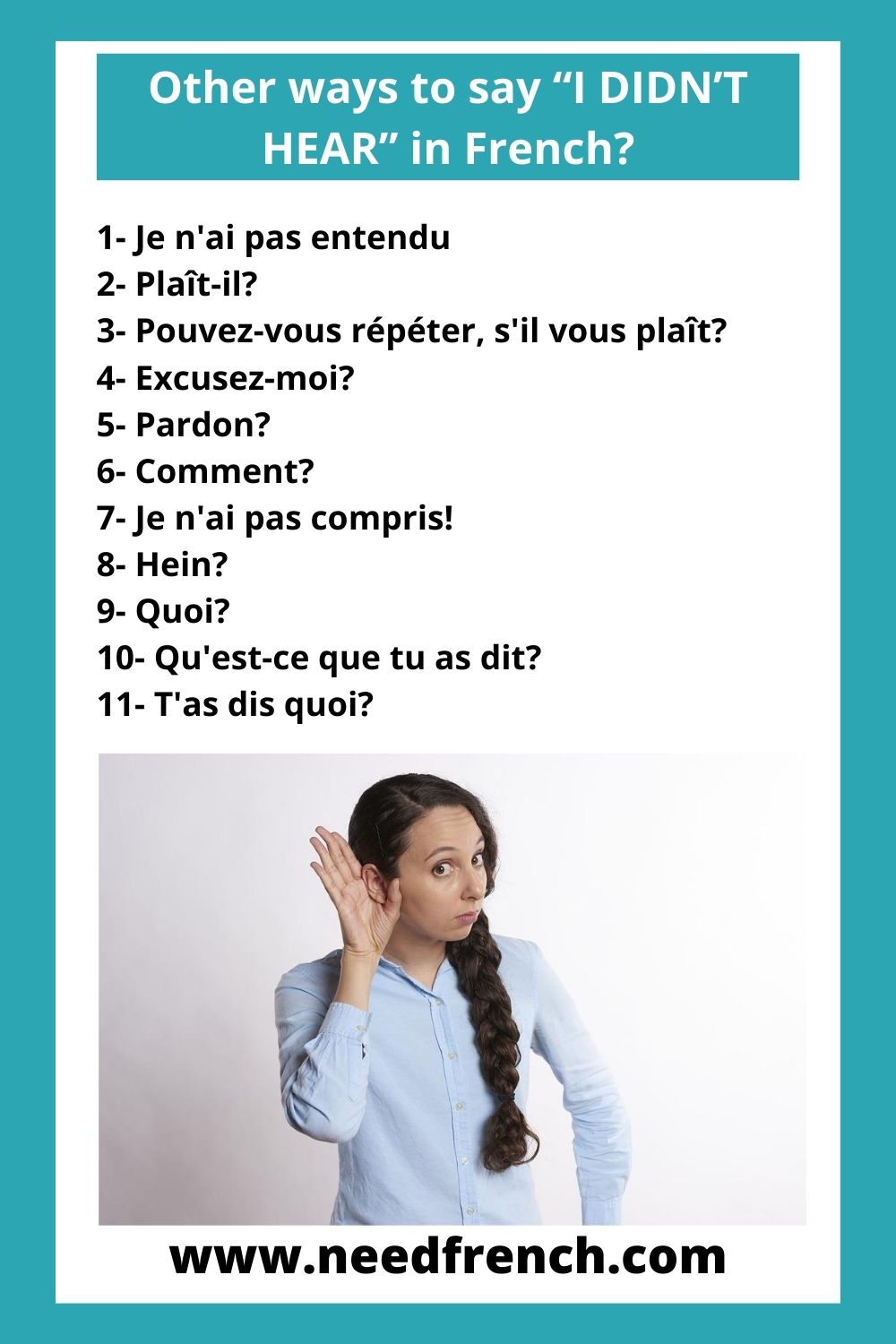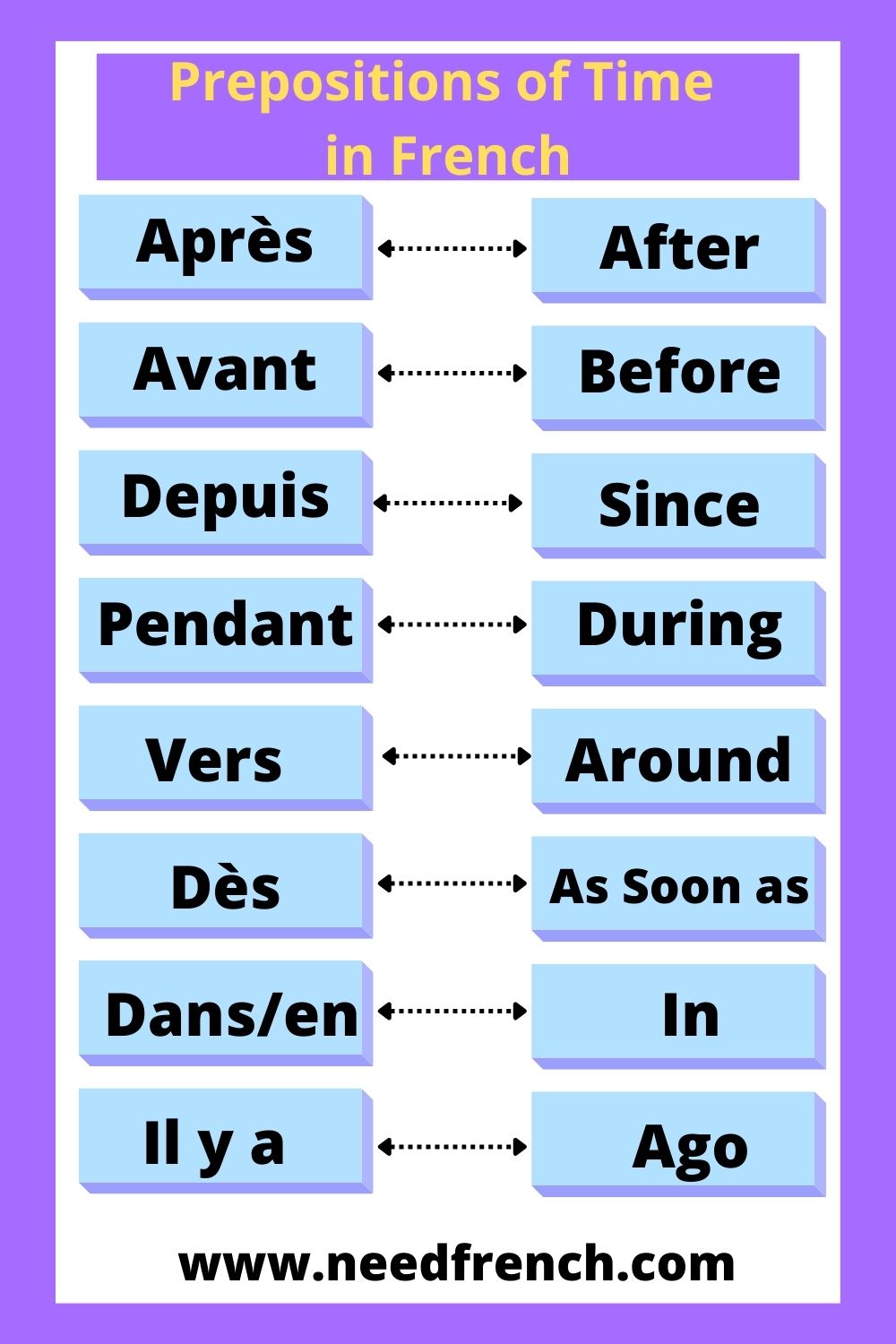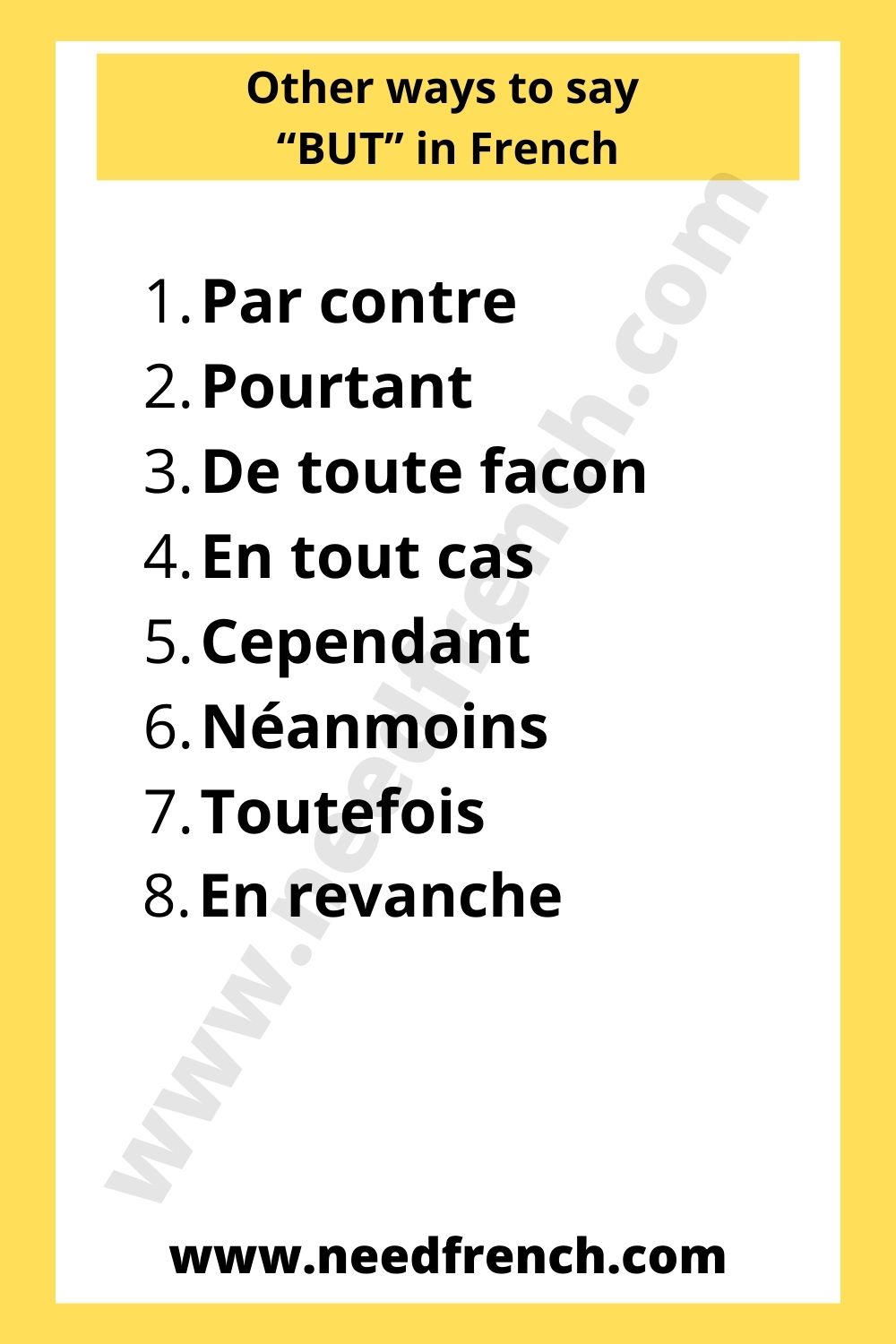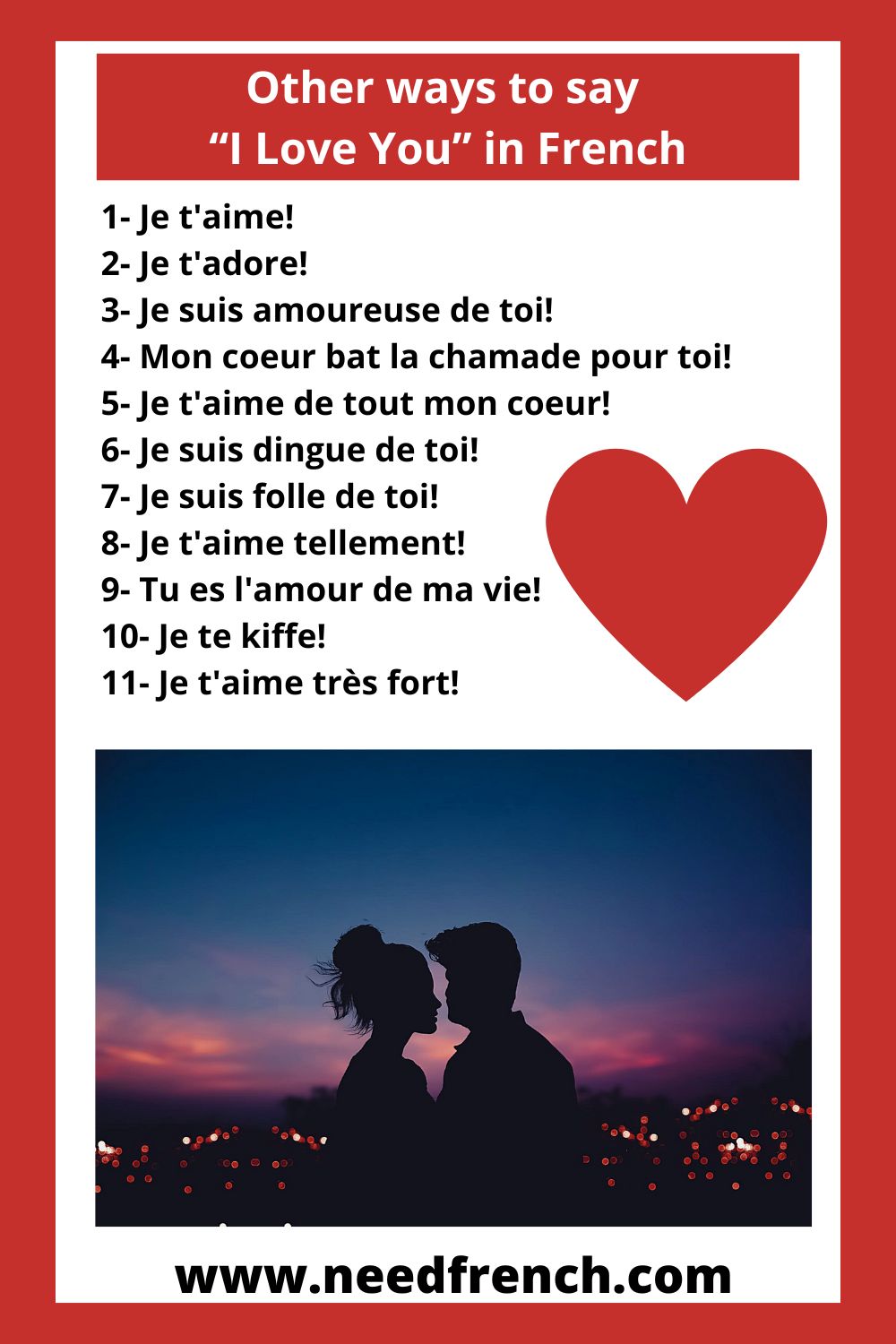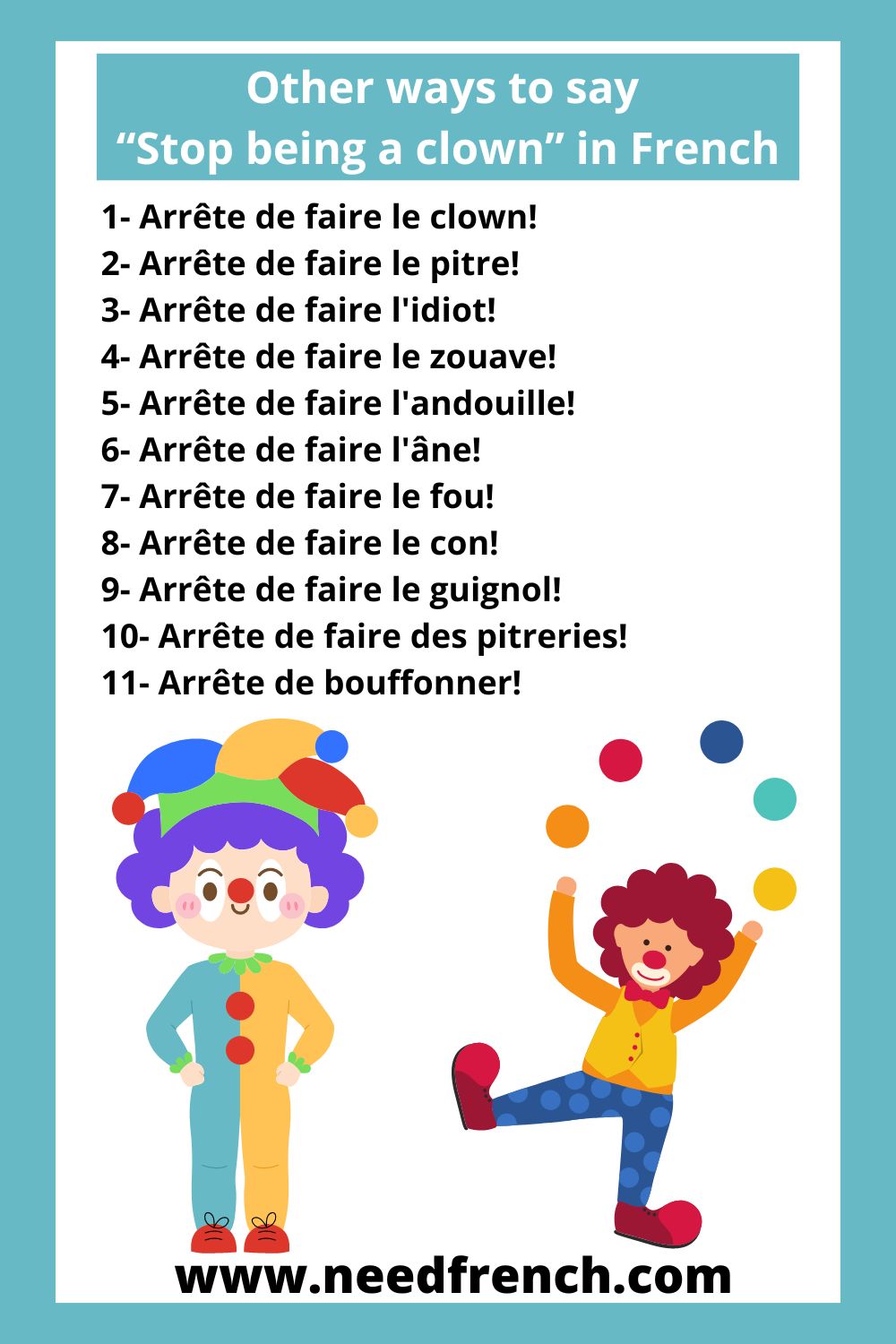Learning to express opinions about people’s behavior is an important part of mastering any language. In French, there are many vivid and often humorous ways to describe someone who’s pretentious or full of themselves. This article will explore various expressions beyond the standard “Elle est prétentieuse!” to help you add some flair to your French conversations.
Table of Contents
ToggleWhy Learn These Expressions?
- Cultural insight: These phrases offer a glimpse into French humor and social observations.
- Conversational fluency: Using idiomatic expressions will make your French sound more natural.
- Vocabulary expansion: Many of these phrases use everyday words in creative ways.
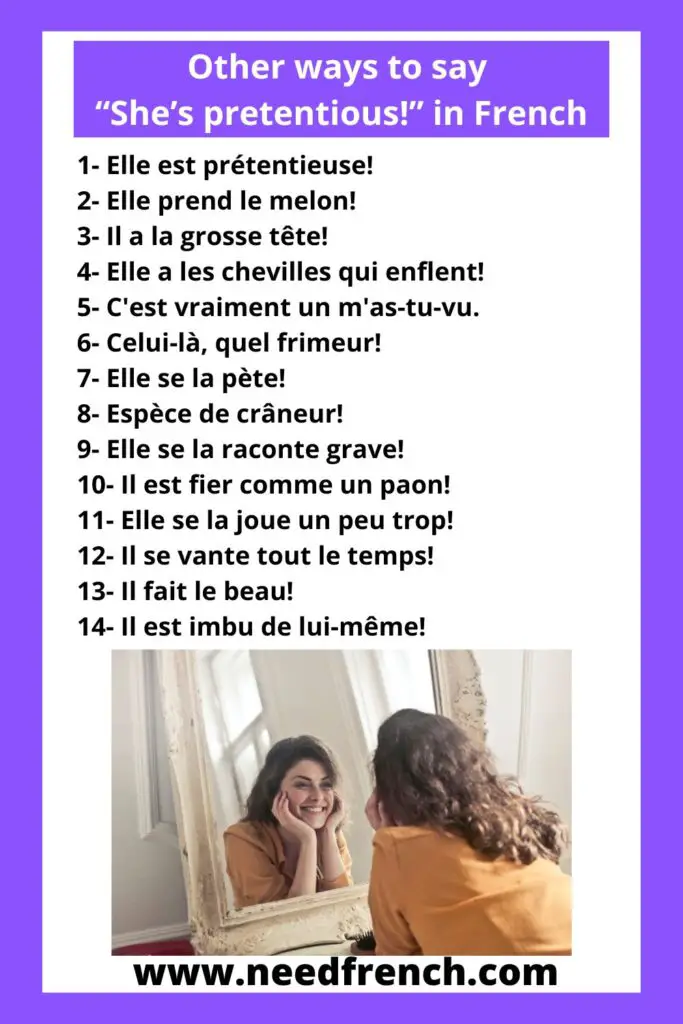
14 Ways to Say “She’s Pretentious!” in French
- Elle est prétentieuse!
- Literal meaning: She’s pretentious!
- Usage: The standard, straightforward way to express this.
- Formality: Neutral, can be used in most contexts.
- Elle prend le melon!
- Literal meaning: She’s getting a melon!
- Usage: Suggests someone’s head is swelling with pride.
- Formality: Informal, best used among friends.
- Il a la grosse tête!
- Literal meaning: He has a big head!
- Usage: Implies someone thinks too highly of themselves.
- Formality: Informal, common in casual conversations.
- Elle a les chevilles qui enflent!
- Literal meaning: Her ankles are swelling!
- Usage: A humorous way to say someone’s ego is inflating.
- Formality: Informal, often used jokingly among friends.
- C’est vraiment un m’as-tu-vu.
- Literal meaning: He’s really a “have-you-seen-me.”
- Usage: Describes someone who always wants to be the center of attention.
- Formality: Slightly informal, but can be used in various contexts.
- Celui-là, quel frimeur!
- Meaning: That one, what a show-off!
- Usage: Used to call out someone who’s bragging or showing off.
- Formality: Informal, best for casual settings.
- Elle se la pète!
- Colloquial meaning: She’s full of herself!
- Usage: A very informal, slightly crude way to express this idea.
- Formality: Very informal, potentially vulgar. Use only among close friends.
- Espèce de crâneur!
- Meaning: You boaster!
- Usage: A direct way to call someone out for bragging.
- Formality: Informal, can be confrontational if said directly to someone.
- Elle se la raconte grave!
- Colloquial meaning: She’s really full of herself!
- Usage: Very informal, popular among younger people.
- Formality: Very informal, slang. Best used among young friends.
- Il est fier comme un paon!
- Literal meaning: He’s as proud as a peacock!
- Usage: A colorful way to describe someone who’s overly proud.
- Formality: Fairly neutral, can be used in most casual to semi-formal contexts.
- Elle se la joue un peu trop!
- Meaning: She’s overdoing it!
- Usage: Suggests someone is trying too hard to impress.
- Formality: Informal, common in everyday speech.
- Il se vante tout le temps!
- Meaning: He’s always bragging!
- Usage: A straightforward way to describe constant boasting.
- Formality: Neutral, can be used in most contexts.
- Il fait le beau!
- Literal meaning: He’s making himself beautiful!
- Usage: Often used to describe someone showing off, especially physically.
- Formality: Informal, slightly playful.
- Il est imbu de lui-même!
- Meaning: He’s full of himself!
- Usage: A more formal way to express this idea.
- Formality: More formal, can be used in professional or literary contexts.
How to Use These Expressions
- Consider the context: Choose an expression that matches the formality of the situation.
- Be cautious: Many of these expressions are quite direct and could be considered rude if used about someone present.
- Gender flexibility: While some expressions use “elle” (she) or “il” (he), most can be adapted to any gender.
- Practice with friends: The more informal expressions are great for casual conversations among friends.
Cultural Note
The French often use humor and exaggeration when describing negative traits. This doesn’t necessarily mean they’re being harsh; it’s often a way of lightening the criticism or making an observation in a more entertaining way. However, the level of formality you choose can significantly impact how your message is received.
Conclusion
These expressions showcase the richness and humor of the French language. By learning them, you’re not just expanding your vocabulary, but also gaining insight into French cultural attitudes and ways of expressing opinions. Remember to consider the formality of each expression and use them appropriately based on your relationship with the listener and the social context.
Practice Activity: Try to create short dialogues in French using expressions from different formality levels. This will help you understand how the tone of a conversation can change based on the expressions you choose.
Question for readers: Which of these expressions do you find most colorful or interesting? How do the formality levels of these expressions compare to similar phrases in your own language? Share your thoughts in the comments below!


